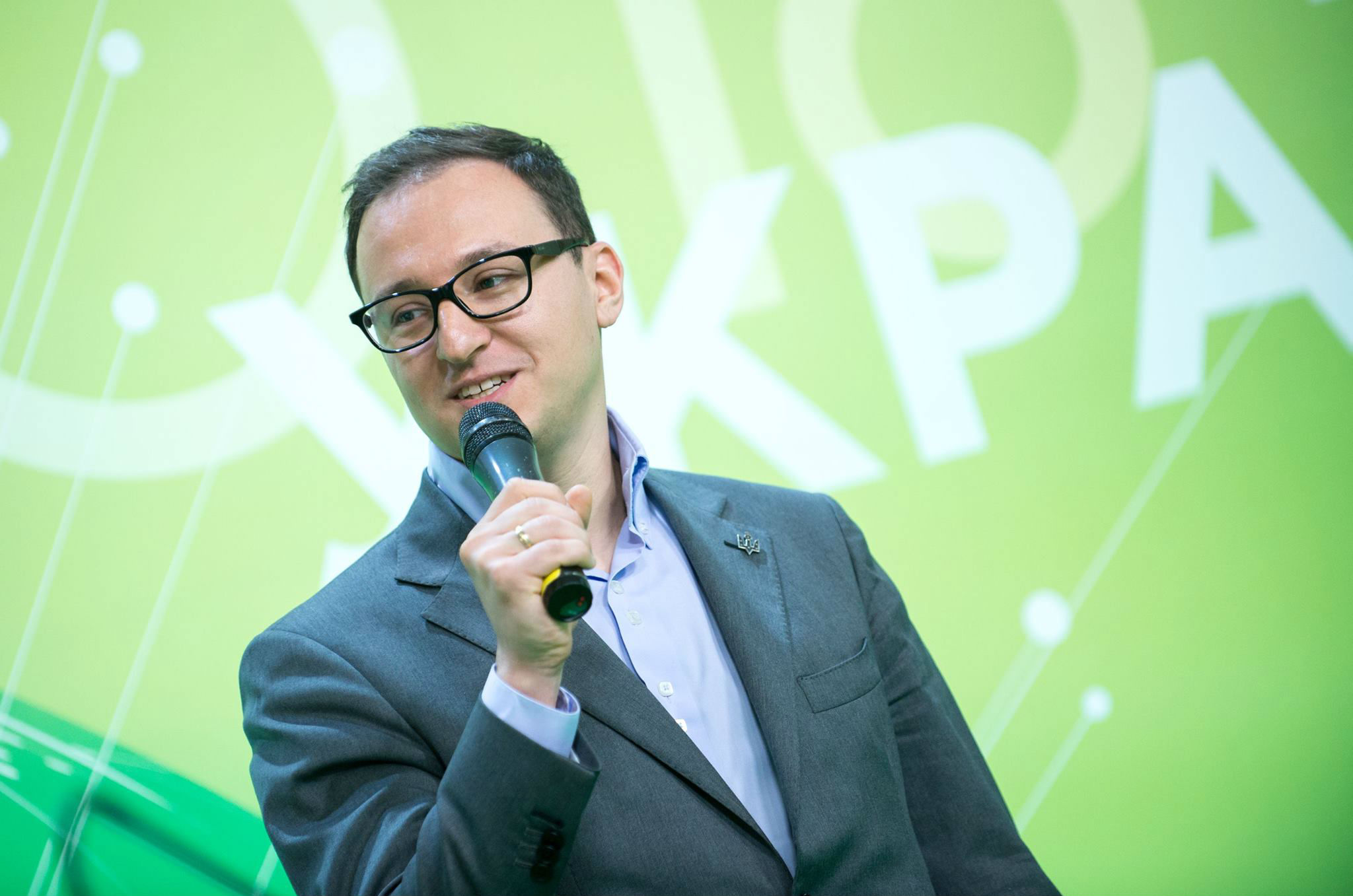 In the summer of 2013, Alex Ryabchyn completed his master’s degree at Sussex University in the United Kingdom, then moved back with his wife and daughter to teach at Donetsk National University in eastern Ukraine.
In the summer of 2013, Alex Ryabchyn completed his master’s degree at Sussex University in the United Kingdom, then moved back with his wife and daughter to teach at Donetsk National University in eastern Ukraine.
That December, the Maidan erupted and he watched from afar with concern. Then in March 2014, after little green men seized Crimea and Russian-backed troops appeared in eastern Ukraine, his life changed.
He became one of Ukraine’s 1.7 million internally displaced persons and eventually a member of parliament with Yulia Tymoshenko’s Batkivshchyna faction.
“Russia’s action was a shock,” he said in an interview during those difficult days. “I’m a Russian-speaking person. My mother was born in Russia. I have lots of Russian-speaking friends, but the Russian part of me died.”
After Russia invaded Crimea, he helped organize a series of “Donetsk Is Ukraine” rallies that drew thousands in February, March, and April 2014. “We didn’t want to be like Crimea,” he said. “I never thought that I’d become a politician.”
He left Donetsk on May 27, 2014, when jets started to fly over Donetsk, and intended to stay only a week in Kyiv. He never returned.
Tymoshenko’s party recruited the thirty-four-year old green energy expert and he serves on the parliamentary energy committee, and is responsible within his party for the Donetsk and Luhansk oblasts where many displaced persons live.
“I’m not able to come to Donetsk. I look at pictures and my heart is torn apart that my region and its industries have collapsed. My home has been destroyed. People have been killed. It will never be the same,” he said.
In 2014, he responded to an email recruiting young leaders and was selected. He met Tymoshenko and was charmed by her poise and warmth.
He, like all reformers, is fed up with President Petro Poroshenko and was sympathetic to opposition politician Mikheil Saakashvili’s calls for reform.
“I did not support him as a Ukrainian politician,” said Ryabchyn, referring to Saakashvili. “He is too emotional, and I wonder who funded him, but Ukraine is a democracy and even if he is saying something against the president he must be protected.”
In 2017, Saakashvili was stripped of his Ukrainian citizenship. In February, Ukrainian border guards detained Saakashvili in a Kyiv restaurant and transported him to Poland on a private jet. He has been banned from reentering Ukraine until 2021.
“It was embarrassing to the country,” he said. “Poroshenko is not a king who can provide citizenship and then take it away. This is not his kingdom… It’s a democratic state.”
As one might expect from an opposition politician whose party is riding high in the polls, Ryabchyn is optimistic about Ukraine’s future.
“I hope Yulia [Tymoshenko] will bring in more new blood to change this country,” he said.
Critics charge that Tymoshenko isn’t reform-minded, something Ryabchyn calls “untrue.” His party supports another round of judicial reform, electoral reform, modifying parliamentary immunity, legislation that can impeach the president, the creation of an anti-corruption court, and NATO membership, he said.
While other young reformers tend to be downbeat about the country’s foot dragging on reforms, Ryabchyn is anything but on his issues.
He said that there’s a consensus among elites that Ukraine needs to consume less Russian gas.
On raising energy prices to world levels, he said the government should have retrofitted housing with thermostats and meters so that people could reduce costs by lowering temperatures. Instead, they have raised prices which benefits oligarchs and handed out subsidies to 60 percent of Ukrainians.
“The only choice people have is to open their windows and let the heat out,” he said.
But the absence of any rule of law, judicial reform, and parliamentary immunity remain the biggest challenges, he said.
“Crooked judges are the biggest problem in Ukraine. This is why there is no new investment. Oligarchs have all the benefits because they know to bribe the judges to get the results they need,” he said. “We know [Poroshenko’s] judicial reform did not work. The new process failed to elect good judges.”
Ryabchyn says that leadership starts at the top and is critical to transforming Ukraine.
He said that Tymoshenko knows how to make the oligarchs behave and knows what they do, citing a $4.8 billion dollar re-privatization deal in 2005.
Despite enormous challenges, he’s glad he took the plunge into politics even though there are downsides. History, he believes, is on Ukraine’s side.
“All the time I receive threats. But you get used to it. The Russians tried to hack my email. We have a lot of stress with Russia as a neighbor, but as we become stronger economically, the Russian people will see we are a democratic and prosperous society, and they will start questioning their president and authorities.”
Diane Francis is a Senior Fellow at the Atlantic Council’s Eurasia Center, Editor at Large with the National Post in Canada, a Distinguished Professor at Ryerson University’s Ted Rogers School of Management, and author of ten books.
Image: Alex Ryabchyn speaks in Kyiv, Ukraine, on June 18, 2016. He is a member of parliament with Yulia Tymoshenko’s Batkivshchyna faction. Credit: Courtesy Photo
